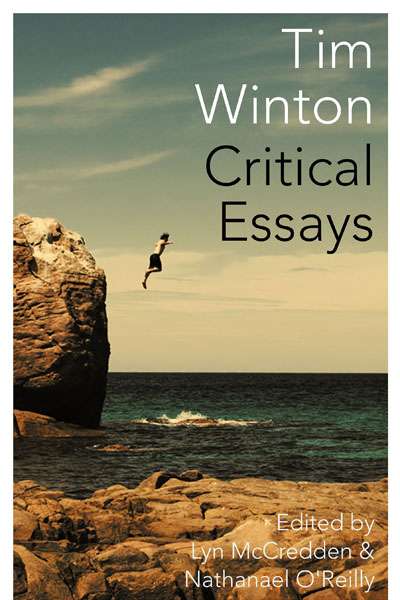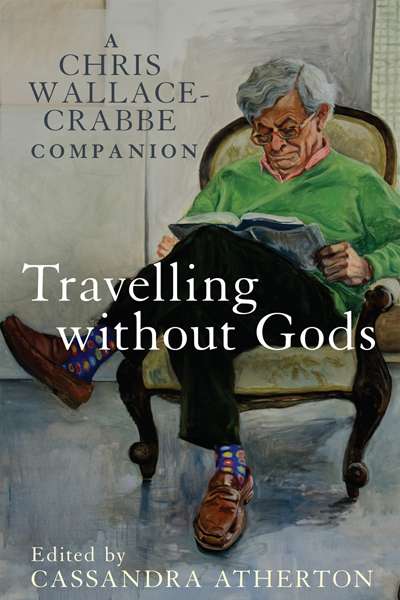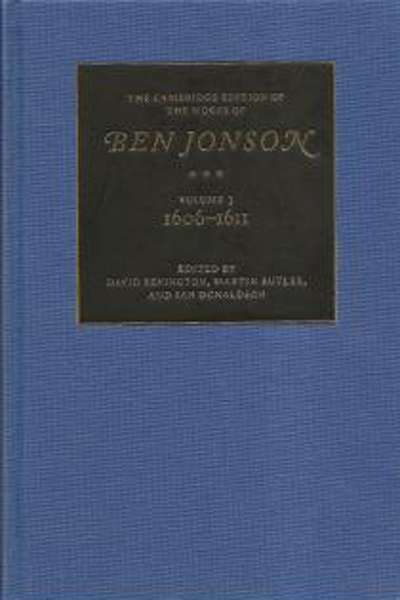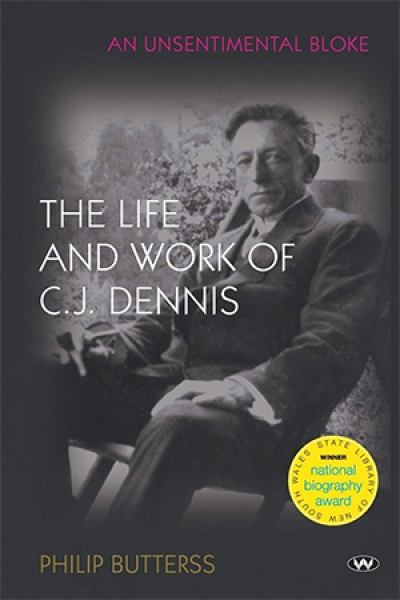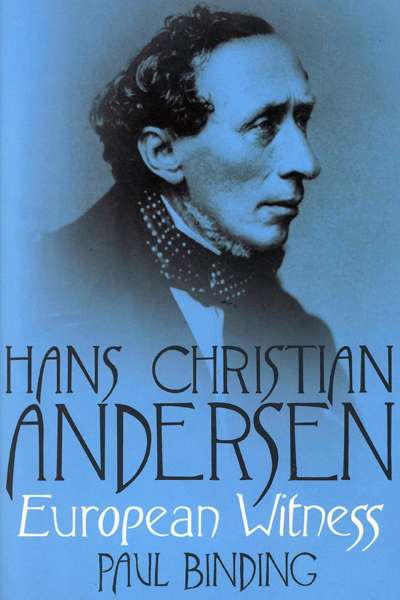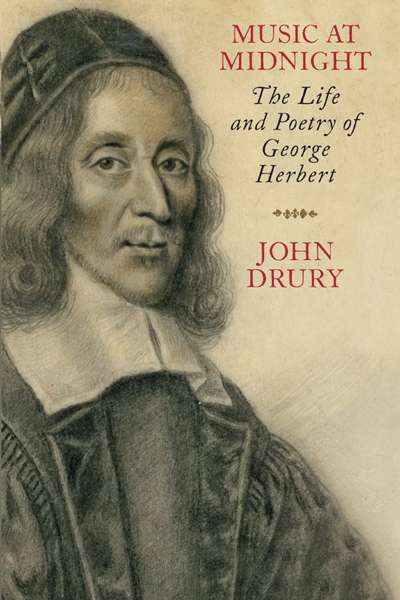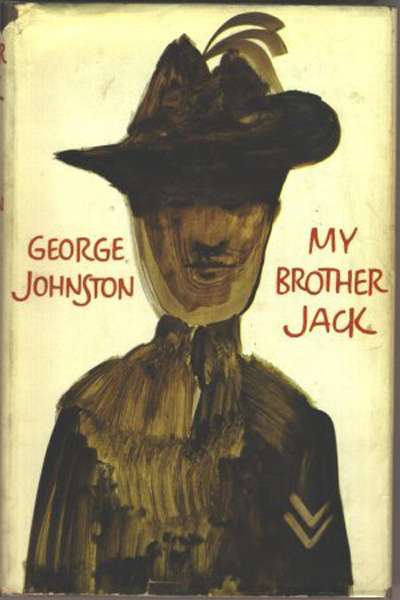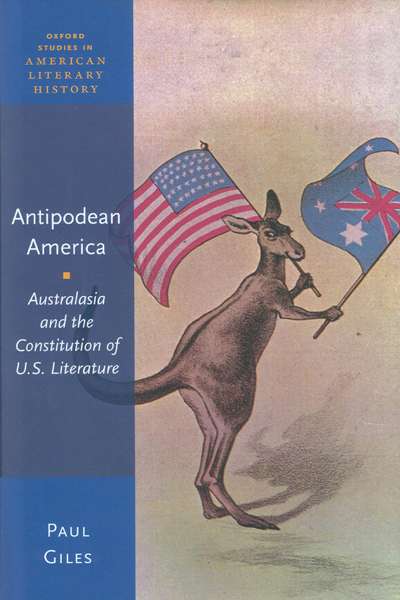Literary Studies
Tim Winton: Critical Essays edited by Lyn McCredden and Nathanael O’Reilly
Sitting, a few years ago, in the audience at a writers’ festival in the south-west of Western Australia, at a panel session hosted by Jennifer Byrne, I was struck by the widespread reaction to one of the panellists announcing that the book she had chosen to discuss was Tim Winton’s Cloudstreet (now securely canonised as an ‘Australian national classic’, as Fiona Morrison’s essay in this volume points out). A ripple of reverential approval went through the auditorium and discreet murmurs of ‘my favourite book’ were exchanged. This response demonstrated the feeling aroused by Winton and his work in a large section of the general reading public, particularly in the West.
... (read more)Travelling Without Gods edited by Cassandra Atherton & My Feet Are Hungry by Chris Wallace-Crabbe
The title of Cassandra Atherton’s anthology, Travelling Without Gods, alludes to the particular brand of agnosticism that has run through Chris Wallace-Crabbe’s work over many decades. Journeying sans deity is evidenced strongly in the poet’s latest collection, a book which, like Atherton’s, has been published to coincide with Wallace-Crabbe’s eightieth birthday.
For a non-believer, Wallace-Crabbe’s My Feet Are Hungry makes frequent reference to Christian ideology. This is in marked contrast to a number of Australian poets – Judith Beveridge, Barry Hill, Robert Gray among them – whose work in recent years testifies to the influence of Buddhism. Wallace-Crabbe’s Christian saviour is located firmly in the historical rather than the sacred. Only mildly irreverent, the poet shows respect for a figure who sides with the disadvantaged in an era of raging commercial interest and power-mad politicians: ‘Did Roman nails deserve his blood? / Even for someone who venerates money / Here is a story of absolute good’ (‘And the Cross’).
... (read more)The Cambridge Edition of the Works of Ben Jonson edited by Ian Donaldson et al.
Shakespeare’s great contemporary Ben Jonson dressed an actor in armour to open his play Poetaster. The Prologue explained:
If any muse why I salute the stage,... (read more)
An armèd Prologue, know, ’tis a
dangerous age,
Wherein who writes had need present
his scenes
Forty-fold proof against the conjuring
means
Of base detractors and illiterate apes,
That fill up rooms in fair and formal
shapes.
An Unsentimental Bloke: The life and work of C.J. Dennis by Philip Butterss
Now and again it is good to remind ourselves that literary history (and I think the history of the other arts) is strewn with the names of those who had great stature in their own time and are now largely forgotten, and with the names of others for whom the reverse is true. William Blake, short of money, went to work for the much more admired poet William Hayley. These days, the name ‘William Hayley’ will only conjure up ‘Rock Around the Clock’. Even Samuel Johnson, perhaps the greatest of all literary critics, thought Abraham Cowley ‘undoubtedly the best’ of the Metaphysical poets, and it took three hundred years for John Donne’s reputation to be firmly established.
... (read more)The Critic in the Modern World: Public criticism from Samuel Johnson to James Wood by James Ley
Aproaching Thomas Wyatt’s great but notoriously resistant poem ‘They flee from me that sometime did me seek / With naked foot stalking in my chamber’, poet and critic Vincent Buckley wrote, ‘The sense of purposive yet mysterious activity created in this opening stanza is also a matter of its sensuousness … The critical problem is to define this … sensuousness … [I]t is not to identify the kind of animal suggested in the analogy. I have heard deer, birds, and mice proposed for this purpose; my own preference is for racehorses, but it is as irrelevant as any other. It is far more important to identify their action than to identify them.’
... (read more)Australian Literary Studies, Vol. 28, no. 1-2 edited by Leigh Dale and Tanya Dalziell
This is a thoughtful and timely issue of Australian Literary Studies (ALS), one of Australia’s most substantial scholarly journals. It brings together scholars from institutions across Australia, India, and New Zealand to reflect on the state of the discipline of English in the context of a number of recent upheavals, including those directly relating to print media, including literature, which many would consider the traditional focus and matter of English. It also includes shifts in cultural literacy in the Internet age: changes in the nature of reading and the places and ways readers read; changes in school curricula; changes in the higher education sector – in response partly to changes in literacy and school education and to a rise in vocational training at both levels; to the rise of the corporate university; and to developments over the past several decades that we might think of as internal to the discipline: the critiques of syllabi and reading practices focused on canonical texts; the rise of theory; of post-colonial and feminist and minority discourse approaches; of interdisciplinary reading, and so on. The contributors to this volume address these questions in terms of debates around ‘the public humanities’: that is, defences of the traditional humanities by scholars from literary studies along with philosophers and historians in the face of attacks from the political and corporate world about the ‘relevance’ of these fields of inquiry.
... (read more)Hans Christian Andersen: European witness by Paul Binding
How a writer bears witness to his age is necessarily the expression of many things, not least the possibly quite peculiar nature of an author’s life. Literary works often emerge from complex upbringings, from periods of youthful isolation spent reading and writing. More still seem to have been written as a result of the fraught relationships that befall authors, perhaps because authors so often view their relationships with a degree of creative and critical distance. And yet, if a writer’s output evidences an unusual life, it also witnesses broader questions being asked by a community as a whole. At some level, even the most remarkable figures are typical of their age, and reflections of it. By the close of Paul Binding’s study of the life and works of Hans Christian Andersen (1805–75), we are reminded that extraordinary feats of originality and imagination are often the result of how unique minds enter wider discourses.
... (read more)Music at Midnight: The life and poetry of George Herbert by John Drury
Disdaining the opening moves traditionally associated with literary biography – the expected orderly progress through ancestry, parentage, birth, schooling, juvenilia – John Drury’s masterly new account of the life and poetry of George Herbert begins instead with the poem that Drury sees as Herbert’s finest work, written in mid-career, ‘Love (III)’. Herbert designed this poem as the culminating piece in the collection upon which his poetic reputation would come ultimately to rest, The Temple (1633).
... (read more)The novel begins with the burnished quality of something handed down through generations, its opening lines like the first breath of a myth. Seductive in tone and concision, charged with an aura of enchantment, the early paragraphs of George Johnston’s My Brother Jack (1964) do more than merely lure the reader into the narrative. In these sentences, Johnston reveals the conviction and control of a master storyteller who, at the outset, establishes his ambition and literary lineage:
... (read more)Antipodean America: Australasia and the constitution of U.S. Literature by Paul Giles
Paul Giles has done important work reimagining North American literary history as allied rather than isolationist – revisioning American literature not as the definition of landlocked nation or exceptional homeland but as the product of transatlantic and continental traverses of forms and voices. In three books, Transatlantic Insurrections (2001), Atlantic Republic (2006), and The Global Remapping of American Literature (2011), he has uncovered the lines of influence and adaptation between North American, British, and European literary cultures. As a geographical materialist, he focuses on individual authors, overlaid with their spatial and historical environments from the colonialist, to the revolutionary, to the postmodern. But he is not an Archimedean, seeking a still perspective from somewhere above or beyond. Rather, his outlook is shaped by cartographical models of the globe with their surface mosaics of national territories and periods. Whether geographical, historical, or literary, the world is always remappable. His impulse is a deterritorialising one, looking out from within the literary work, that imaginary space from which selves, borders, hemispheres, the nation, the world can be reperceived and co-ordinates reversed or rotated.
... (read more)

